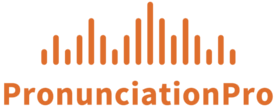Last week I shared 3 Easy Tips To Pass The Voice And Accent Round, but what exactly is a voice and accent round? As voice and accent rounds become more prominent in the interview process many nonnative English speakers want to know “what is a voice and accent round?”, “how does a voice and accent round work?”, “why do companies require voice and accent rounds?”, etc. This post will answer these questions and give you a better idea of what voice and accent rounds are like.
WHAT IS A VOICE AND ACCENT ROUND?
An accent round is a stage in the interview process that some companies require of nonnative English speakers to examine their oral communication skills. Employers want to know how strong a nonnative English speaker’s communication skills are and will judge you on the following parameters: mother-tongue accent, listening comprehension, and fluency.
That is why it is important to have clear English pronunciation. If you haven’t already, I’d highly encourage you to go through my 3 Easy Tips To Pass The Voice And Accent Round.
HOW DOES A VOICE AND ACCENT ROUND WORK?
Generally speaking, voice and accent rounds are held over the phone, but may also be in-person with a voice and accent round specialist (though this is more rare). Voice and accent rounds are normally evaluated by a software and your answers are recorded for further evaluation purposes.
In a voice and accent round you can expect to be evaluated through several exercises in one or all of the following sections below. Keep in mind that the process differs for each company.
- Introduction: this will feel like a normal interview where you are asked to introduce yourself. This is a great time for the employer to get to know you as you are asked about hobbies, likings, your routine, educational background, etc.
- Topic(s): you may be given simple topics to talk about. This is where you will be evaluated on your flow of thoughts, fluency, how you compose your sentences, your vocabulary, and of course how easy to understand you may be for your listeners.
- Answering questions: this will be comprised of questions and following instructions. For example, you may be asked to say what the synonym or antonym of a word is. You might also be asked to listen to a short story or statement and then retell the story or statement as closely as you can remember in your own words.
- Reading: it is common for some voice and accent rounds to provide you with written passages, and/or a list of sentences for you to read aloud.
The voice and accent round is set on a scale of 100, with 75/100 being the cutoff.
WHY DO COMPANIES REQUIRE VOICE AND ACCENT ROUNDS?
Employers want and need to make sure that individuals they hire are able to communicate clearly and effectively. If you’re unable to speak English clearly then it will be difficult for you to express your ideas and expertise with your coworkers, clients, and stakeholders. Poor English communication skills can lead to decreases in productivity and your value to the company.
Voice and accent rounds are not meant to be discriminatory—it is not only for the benefit of your employer but will also be a great benefit to you! Making sure you are prepared to speak English clearly will in the end help you feel more confident to speak up, share your ideas and expertise with others, give speeches and presentations, and will also build your self-esteem as you communicate freely with native English speakers.
I hope this post answered some of your questions about voice and accent rounds! I wish you all the best as you prepare for one! If you have done a voice and accent round please share your experience in the comments below! I’d love to hear from you! What were some questions you were asked? What do you remember about your voice and accent round experience? If you have any questions feel free to contact me on my website or follow me on LinkedIn so you don’t miss out on any future posts! Cheers!

